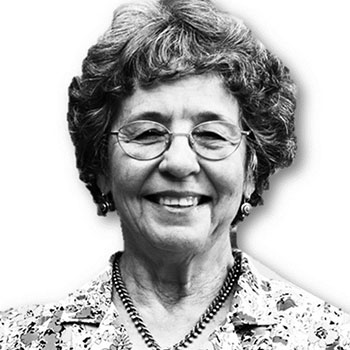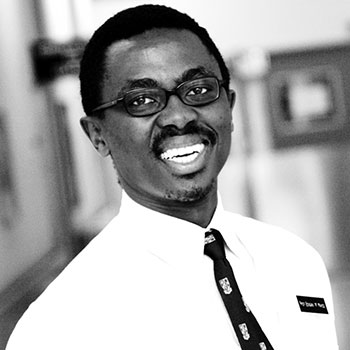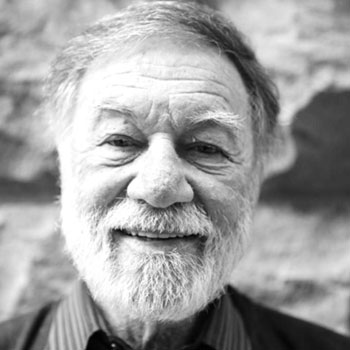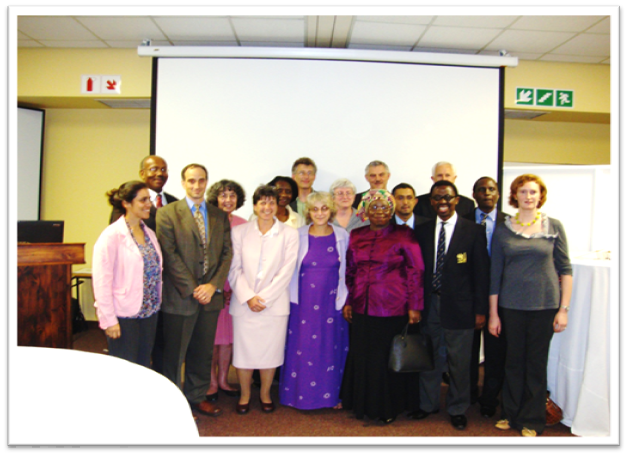

Professor Krisela Steyn
(19 June 1941 - 7 October 2019)
Professor Steyn was an Associate Director and Senior Scholar of the CDIA and renowned as an inspiring public health researcher who was committed to reducing the personal and societal burden of non-communicable diseases (NCDs).
She spent all but the last 10 years of her career at the South African Medical Research Council where she was the founding Director of the Chronic Diseases of Lifestyle Unit, a WHO Collaborating Centre which conducted seminal work on the impact of hypertension and smoking as well as building the evidence base for interventions. Her work identified high risk groups and showed that South Africans at risk of cardiovascular diseases received inadequate treatment. Her work also highlighted the worsening risk factor patterns and urgency for interventions. She was a passionate advocate for the prevention and management of non-communicable diseases and served on the boards of national organisations such as the Heart and Stroke Foundation. She was frequently consulted by the National Department of Health and contributed to global initiatives that brought these conditions to the forefront, culminating in the first high-level meeting on non-communicable diseases held by the UN in 2011.
Following her formal retirement from the SA-MRC she was appointed to UCT from 2005 where she assumed a pivotal role in establishing the Chronic Disease Initiative for Africa (CDIA). As a Deputy Director, she helped create the partnership between several Western Cape institutions with the ambition of developing and testing tools to address chronic diseases in the primary care setting and the community. She was instrumental in guiding CDIA towards implementation by building the partnership with government and non-governmental agencies and was dedicated to training and mentoring students in the complexities of public health research. She retired from CDIA in 2016.
Krisela was a role model in collaborative public health research and will be sadly missed by colleagues at UCT, the SA-MRC and well beyond.

Professor Bongani Mawethu Mayosi
(28 January 1967 – 27 July 2018)
Professor Bongani Mayosi was a founding member and strong supporter of CDIA from before its inception. During our inaugural meeting in November 2009, Nkosazana Dlamini-Zuma accepted his invitation to speak at the official launch of CDIA.
Following his father’s footsteps to become a doctor, Prof Mayosi trained at the Nelson R. Mandela School of Medicine at University of KwaZulu-Natal, where he received his MBChB. (Cum Laude), and subsequently completed his specialist training in internal medicine and cardiology at the University of Cape Town (UCT). He then moved to Oxford University in the United Kingdom (UK), on a prestigious Nuffield Medical Fellowship where he completed a DPhil in cardiovascular genetics at the Wellcome Trust Centre for Human Genetics.
In 2001‚ he returned to Cape Town to commence research‚ teaching, and clinical responsibilities in Internal Medicine and Cardiology at UCT and Groote Schuur Hospital (GSH, and, in 2006, at the age of 38‚ he became the first Black Faculty member to be made Professor and Head of the Department of Medicine.
He published over 300 peer-reviewed academic articles individually and collectively and was part of the team which discovered one of the gene mutations responsible for causing the life-threatening heart disease arrhythmogenic right ventricular dysplasia, which was regarded as one of the most important medical advances in South Africa since the first human heart transplantation.
His legacy will remain forever inscribed on our collective experience of life, learning and excellence.
http://www.mayosilegacy.uct.ac.za/

Professor David Sanders
(5th August 1945– 30 August 2019)
Professor Sanders was the chairperson of the CDIA governing Board and the founding Director of the School of Public Health at the University of the Western Cape (UWC). He was respected as a giant in the field of both child and public health and an unwavering fighter for social justice. He was internationally recognised for his work to advance the cause of child health – via his networks locally and across the globe, through his involvement with national and liberation movements and his consulting work with organisations such as the World Health Organisation and UNICEF. In South Africa, he was highly active in supporting Health for All and People’s Health Movement, having been a founder member in 2000 and Co-Chair of the Global Steering Council for the last six years.
David started his public health career in the 1980s, where he was responsible for the design and coordination of a large rural health programme in Zimbabwe and started a national intersectoral programme to address child malnutrition, hailed as one of the great successes of the immediate post-independent Zimbabwe. He was appointed as the founding Director of the School of Public Health (SOPH) at the University of the Western Cape in 1993 and continued in that role until he retired in 2009. During his tenure SOPH grew to international recognition and trained numerous students from across Africa and the Indian subcontinent.
Prof Sanders was a prolific academic who wrote over 250 journal publications and four books. He was also the Editor of the Global Health Watch, the ‘Alternative World Health Report’. His many academic honours included being Visiting Lecturer at the London School of Hygiene and Tropical Medicine, and Honorary Professor at the same institution from 2005 to 2007; Visiting Professor at Charité–Universitätsmedizin, Berlin, and at the Centre for International Health, University of Bergen, Norway; Professor in the School of Medicine, Faculty of Health Sciences, Flinders University of South Australia and being awarded an Honorary Doctorate by the University of Cape Town in 2013 in recognition of his academic scholarship and multiple contributions to advance child health across the world. Professor Sanders was a highly esteemed colleague, whose passion for social justice in health inspired many.
He touched many people deeply, sharing his passion for life and justice with warmth and good humour.


